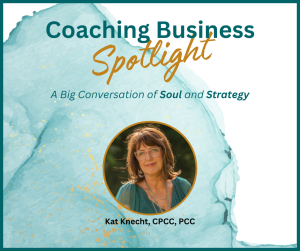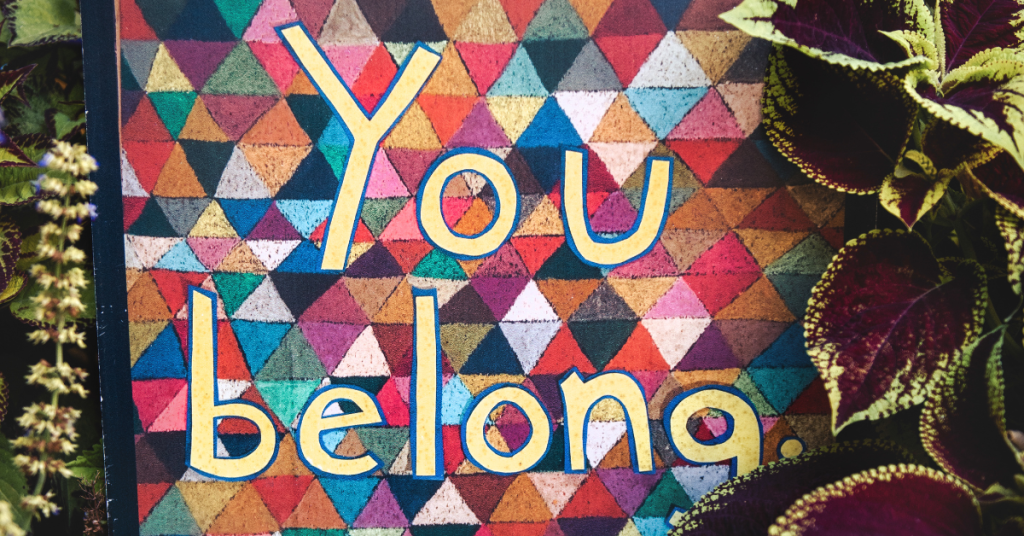When I first looked at the topic of belonging in a learning experience I focused on adult learning.
But when I sat down to write, I was flooded with memories of all the different types of learning I have experienced.
I was struck by a memory of kindergarten, where I felt a sense of belonging and joy that still brings a smile.
I got curious. What was it about kindergarten that triggered this memory? The answer jumped up: we played. There was a ton of learning about letters and numbers along with all kinds of things, like how baby chicks are born.
I remember the learning being fun, inclusive, and delivered with a wonderful sense of me being nurtured for my unique strengths and interests.
I had a deep sense of belonging.
However, as I navigated through my later learning experiences, that changed. Radically.
Fast forward a few years. That learning experience was way different. I have a learning disorder called dysgraphia that was not identified at the time. This disorder makes handwriting and spelling challenging to say the least. To compensate for this lack of ability, I got creative.
I went above and beyond with assignments and projects. I created plays and gave presentations instead of writing essays.
I fashioned paper mache dioramas to fulfill assignments.
Though I was praised for using my creativity, and usually received a good grade, I was also shamed and made to feel like an outsider when my creativity went over the top.
I didn’t fit in.
Brené Brown, the renowned researcher on topics like vulnerability and belonging, distinguishes between fitting in and true belonging.
She says that fitting in involves changing ourselves to be accepted, while belonging requires us to embrace our authenticity without fear of judgment.
True belonging means being part of something larger while staying true to ourselves.
As Brown beautifully puts it, “True belonging never asks us to change who we are; it requires us to be who we are.”
Creating a sense of belonging in group learning experiences is more than just ensuring everyone feels welcome; it’s about fostering an experience where each person can be their authentic selves, share vulnerably, and engage deeply with the material and each other.
You can see the importance of belonging and how essential it is to cultivate it in learning settings.
Belonging in a learning experience is particularly special because it goes beyond mere participation. It’s about feeling engaged, valued, and supported in one’s journey of growth and discovery.
When individuals feel like they belong, they are more likely to actively participate, contribute ideas, and collaborate with others.
This enhances the overall learning experience for everyone involved.
Like my formal education experience shows, creating a sense of not belonging can stem from various factors: making individuals feel wrong and judged, or setting unrealistic criteria for acceptance.
Past personal experience often shapes our perceptions of belonging.
Most of us carry baggage from our childhood or early adulthood that has left us extra sensitive to feeling left out or so afraid of not fitting in that we unconsciously put up our guard and shy away from bringing our authentic selves to a group learning experience.
I know this is what happened to me, and it took me time and many positive experiences to be able to fully enjoy learning in a group.
Reflecting on my experiences with leading for organizations like the Co-Active Training Institute and leading my own groups, I’ve learned the significance of using intentional practices to cultivate belonging.
My experience with CTI and how their training embraced individual dreams and vulnerabilities while fostering a culture of openness and acceptance resonated deeply with me.
In my own groups, I work to honor these principles by intentionally welcoming each member’s uniqueness and creating alliances based on mutual respect and support.
This is something that is needed on an ongoing basis. It’s not a “one and done” deal. I find this to be a key ingredient in fostering an ongoing sense of the belonging that enhances a learning experience.
A designed alliance requires checking in with the individuals to stay current with what would make the experience better, what is working well, and how the group can come to agreement for the sake of the individual.
It takes work and it can be messy. It’s worth it, though.
Another key to fostering belonging is active engagement. When individuals are encouraged to participate, share, and collaborate authentically, they feel valued and connected to the learning community.
By establishing clear guidelines for respectful communication and actively listening to each other, you create a safe space where everyone’s voice is heard and honored.
Again, it may get messy and take time to find what works for the group, but it is always worthwhile
There are other behaviors that are super helpful in creating a learning experience where participants feel they belong. The leaders themselves need to be vulnerable, to lead by example, and to set clear expectations.
Belonging is well worth creating for your own groups, the ones you lead as well as the ones in which you participate.
I have found that when you experience belonging in a learning experience, you open to a wealth of new information, stretch into new territory, and not only is the learning expanded but you are expanded as well.

 Ep. 20 – Kat Knecht – The Power of Belonging in Coaching
Ep. 20 – Kat Knecht – The Power of Belonging in Coaching
Discover the power of belonging in coaching with Kat Knecht. Learn how embracing community and individuality can transform your coaching journey. Kat shares personal stories, strategies for overcoming fear, and tips for staying true to your unique style.




